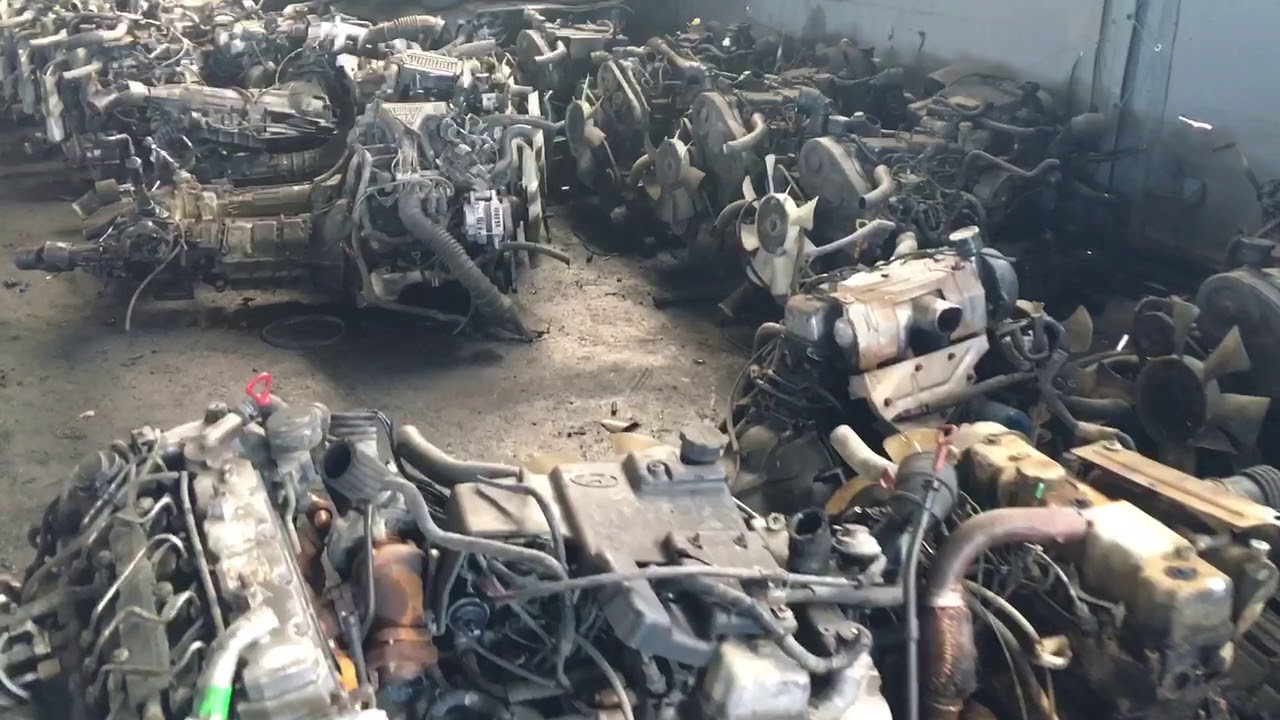Guide to Buying Used Engines in Nigeria
Purchasing a used engine in Nigeria can be a cost-effective solution for vehicle owners looking to replace a faulty or worn-out engine without breaking the bank. However, navigating the process of buying a used engine requires careful consideration and research to ensure you get a reliable and high-quality product. In this comprehensive guide, we’ll walk you through the steps involved in buying a used engine in Nigeria, from assessing your needs to inspecting the engine and negotiating the price.
Assess Your Needs:
Before you begin your search for a used engine, it’s essential to assess your specific needs and requirements. Determine the make, model, and year of your vehicle, as well as the type of engine you need. Consider factors such as engine size, fuel type, and compatibility with your vehicle’s transmission system. Having a clear understanding of your needs will help you narrow down your options and find the right engine for your vehicle.
Research Suppliers:
Once you’ve identified your requirements, research reputable suppliers and dealerships in Nigeria that specialize in selling used engines. Look for suppliers with a proven track record of reliability, honesty, and customer satisfaction. You can find suppliers through online platforms, classified ads, automotive forums, and recommendations from friends, family, or mechanics. Take the time to read reviews, testimonials, and customer feedback to gauge the reputation of potential suppliers.
Inspect the Engine:
Before making a purchase, it’s crucial to inspect the used engine thoroughly to assess its condition and performance. If possible, arrange to inspect the engine in person or have a trusted mechanic inspect it on your behalf. Check for signs of wear and tear, damage, leaks, and corrosion. Inspect the engine block, cylinder head, pistons, valves, and gaskets for any signs of damage or deterioration. Start the engine and listen for unusual noises, vibrations, or smoke, which could indicate underlying issues. Additionally, ask for documentation such as service records, maintenance history, and vehicle mileage to verify the engine’s condition and reliability.
Verify Authenticity and History:
When purchasing a used engine, it’s essential to verify its authenticity and history to ensure you’re getting a genuine and reliable product. Ask the seller for the engine’s VIN (Vehicle Identification Number) or engine serial number and cross-reference it with the vehicle’s documentation to confirm its origin and history. Additionally, request any available documentation such as proof of purchase, receipts, or warranty information to validate the engine’s authenticity and warranty coverage. Be wary of sellers who are unable or unwilling to provide this information, as it could indicate potential red flags or fraudulent activity.
Negotiate the Price:
Once you’ve inspected the engine and verified its authenticity, it’s time to negotiate the price with the seller. Use your research and inspection findings to negotiate a fair and reasonable price based on the engine’s condition, mileage, age, and market value. Be prepared to walk away if the seller is unwilling to negotiate or if the price exceeds your budget. Remember to factor in additional costs such as shipping, installation, and any necessary repairs or modifications when determining your final budget.
Arrange for Shipping or Pickup:
After reaching an agreement on the price, arrange for the shipping or pickup of the used engine. If you’re purchasing from a local supplier or dealership, you may be able to pick up the engine in person or arrange for delivery to your location. If you’re buying from a seller in another location, discuss shipping options and logistics, including shipping costs, delivery times, and tracking information. Choose a reputable shipping company or courier service with experience in handling automotive parts to ensure safe and timely delivery of the engine.
Install the Engine:
Once the engine has been delivered or picked up, it’s time to install it in your vehicle. If you have the necessary tools, knowledge, and experience, you may choose to install the engine yourself. However, if you’re not confident in your abilities, it’s best to hire a professional mechanic or automotive technician to perform the installation. Ensure that the engine is installed correctly, according to manufacturer specifications, to prevent any issues or complications down the road. After installation, test the engine thoroughly to ensure it’s functioning properly and meets your expectations.
Maintain and Care for the Engine:
After installing the used engine in your vehicle, it’s essential to maintain and care for it properly to ensure longevity and performance. Follow the manufacturer’s recommended maintenance schedule and guidelines for oil changes, filter replacements, and other routine maintenance tasks. Regularly inspect the engine for signs of leaks, damage, or wear and address any issues promptly to prevent further damage or deterioration. By taking proper care of your used engine, you can maximize its lifespan and enjoy reliable performance for years to come.

Be First to Comment